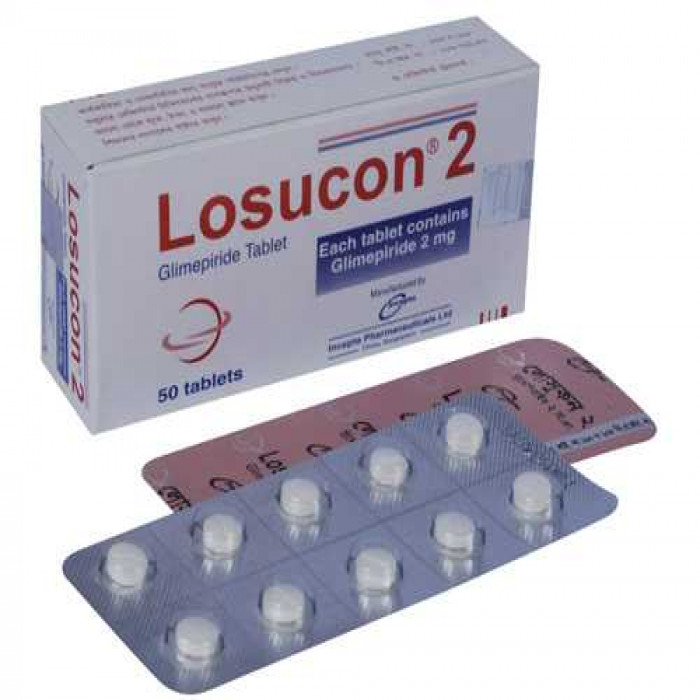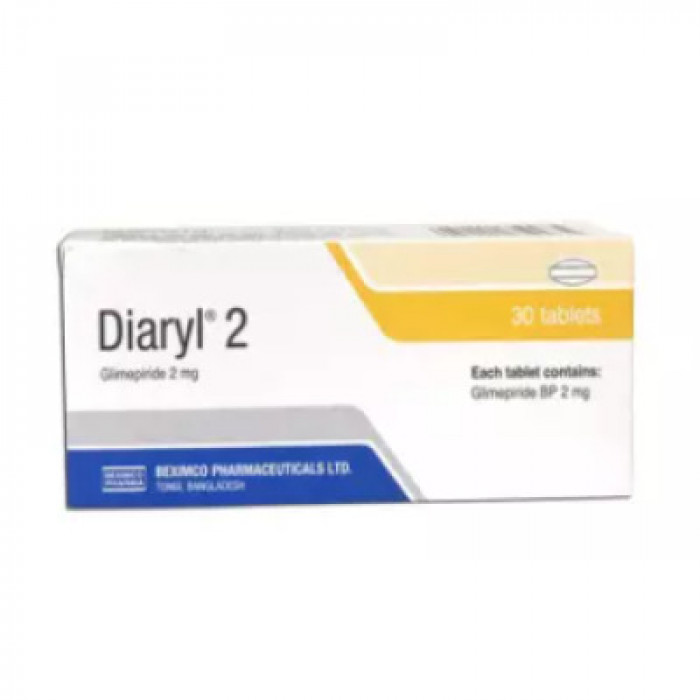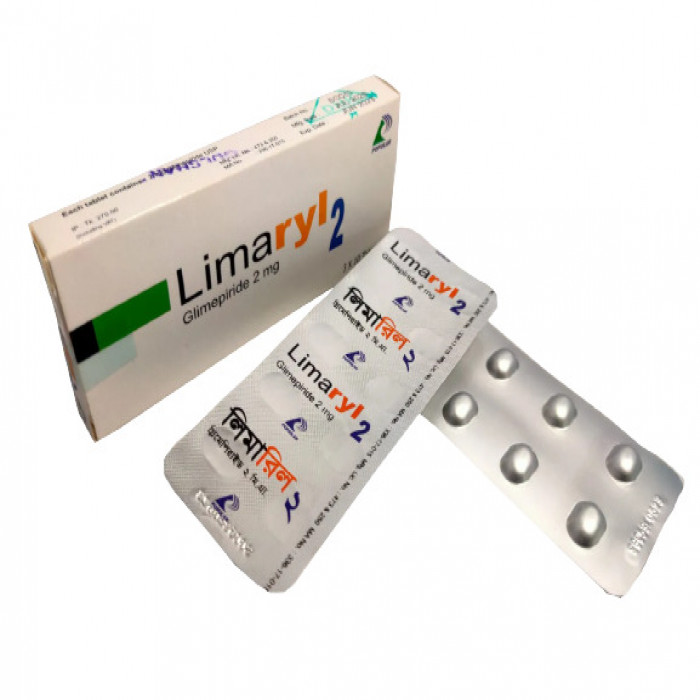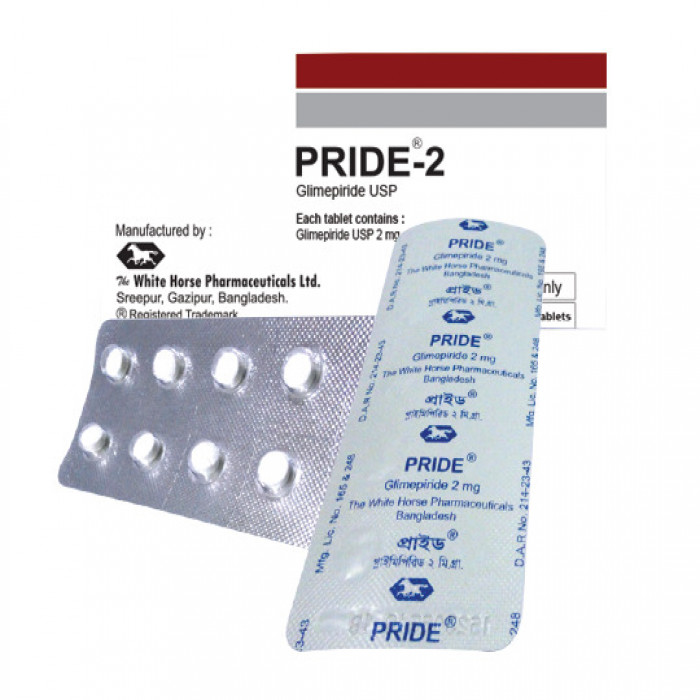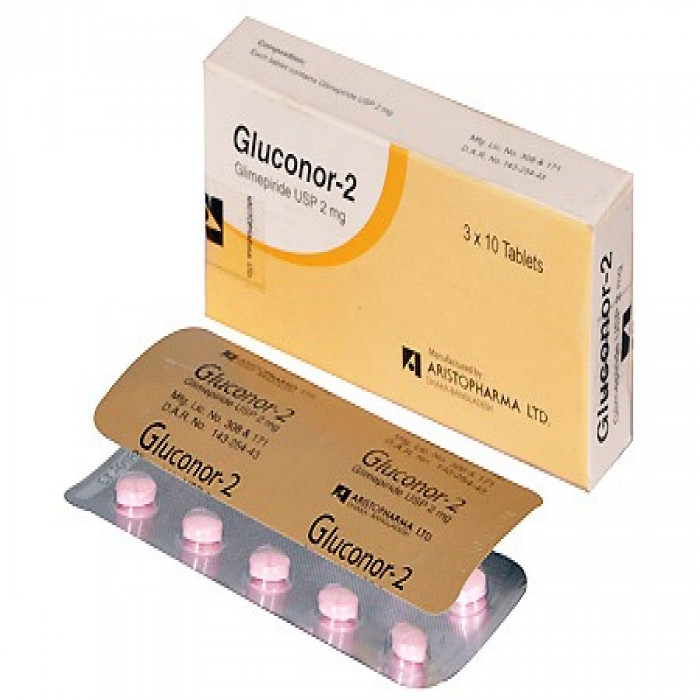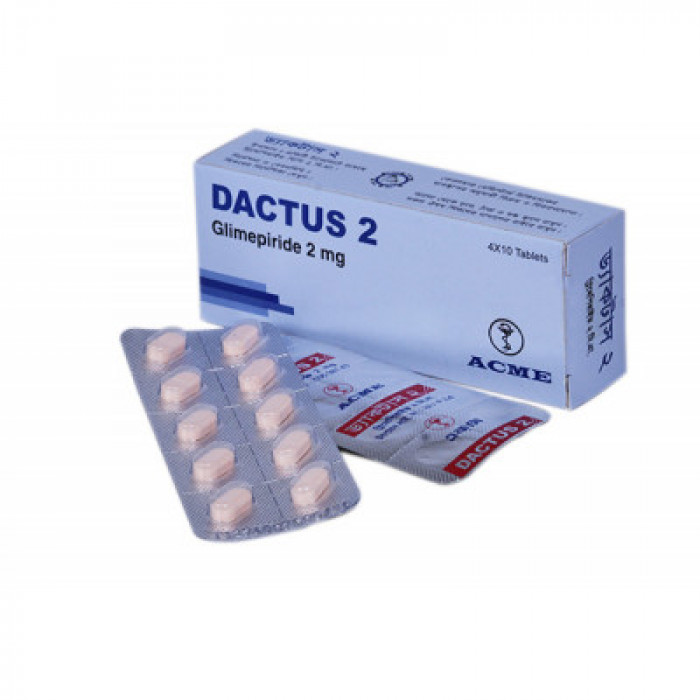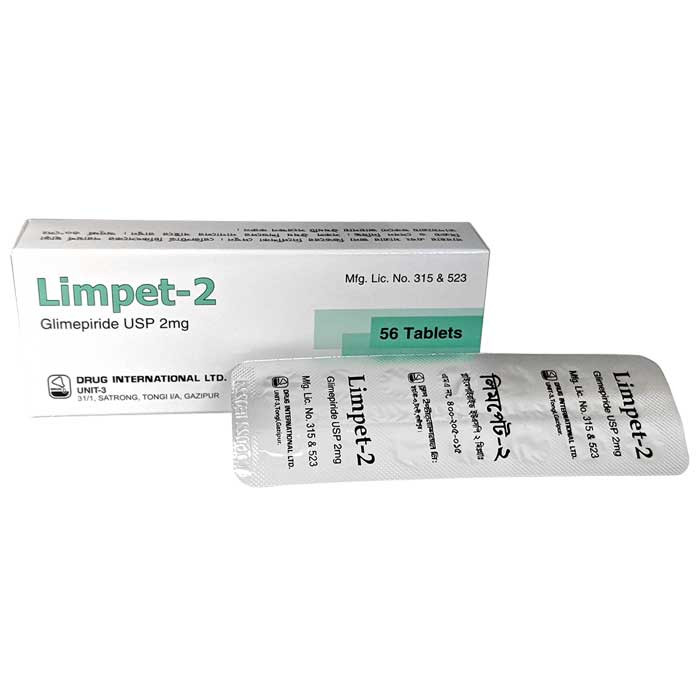
✔ 100% Authentic Product
👁️ Currently Viewing 1435
Tablet. Manufacturer/Distributor: Drug International Ltd. Generic Name: Glimepiride 2 mg Tablet
Discount
Price: ৳ 92
MRP:
৳
98
6%
Off

100% Genuine Products, Guaranteed

Safe & Secure Payments, Always

Fast, Secure & Efficient Delivery

Proper Packaging
 Cash on Delivery - All over Bangladesh
Cash on Delivery - All over Bangladesh Regular Delivery - 12-24 Hours, Dhaka City* Charge Tk.39-59
Regular Delivery - 12-24 Hours, Dhaka City* Charge Tk.39-59 Regular Delivery - 24-48 Hours, Other Cities* Charge Tk.99-110
Regular Delivery - 24-48 Hours, Other Cities* Charge Tk.99-110
 ফ্রি ডেলিভারিঃ - ৯৯৯ টাকা+ অর্ডারে, ঢাকা
শহরে
ফ্রি ডেলিভারিঃ - ৯৯৯ টাকা+ অর্ডারে, ঢাকা
শহরে ফ্রি ডেলিভারিঃ - ২৯৯৯ টাকা+ অর্ডারে, ঢাকার
বাহিরে
ফ্রি ডেলিভারিঃ - ২৯৯৯ টাকা+ অর্ডারে, ঢাকার
বাহিরে
100% Genuine Products, Guaranteed
Safe & Secure Payments, Always
Fast, Secure & Efficient Delivery
Proper Packaging
 Cash on Delivery - All over Bangladesh
Cash on Delivery - All over Bangladesh Regular Delivery - 12-24 Hours, Dhaka City* Charge Tk.39-59
Regular Delivery - 12-24 Hours, Dhaka City* Charge Tk.39-59 Regular Delivery - 24-48 Hours, Other Cities* Charge Tk.99-110
Regular Delivery - 24-48 Hours, Other Cities* Charge Tk.99-110 ফ্রি ডেলিভারিঃ - ৯৯৯ টাকা+ অর্ডারে, ঢাকা
শহরে
ফ্রি ডেলিভারিঃ - ৯৯৯ টাকা+ অর্ডারে, ঢাকা
শহরে ফ্রি ডেলিভারিঃ - ২৯৯৯ টাকা+ অর্ডারে, ঢাকার
বাহিরে
ফ্রি ডেলিভারিঃ - ২৯৯৯ টাকা+ অর্ডারে, ঢাকার
বাহিরে
✅ Description:
Glimepiride is indicated as an adjunct to diet to lower the blood glucose in patients with non-insulin-dependent diabetes mellitus (type 2 diabetes) whose hyperglycemia cannot be controlled by diet, physical exercise and weight reduction.
Glimepiride is also indicated for use in combination with Insulin to lower blood glucose in patients whose hyperglycaemia can not be controlled by diet and exercise or in conjunction with an oral hypoglycaemic agent.
Dosage: In principle, the dosage of Glimepiride is governed by the desired blood sugar level. The dosage of Glimepiride must be the lowest which is sufficient to achieve the desired metabolic control.
The initial and the maintenance doses are set based on the results of regular checking of glucose in blood and urine. Monitoring of glucose levels in blood and urine also serves to detect either primary or secondary failure of therapy.
Initial dose and dose titration: Usual initial dose is 1 mg once daily. If necessary, the daily dose can be increased. Any increase can be based on regular blood sugar monitoring, and should be gradual, i.e., at intervals of one to two weeks and carried out step wise at follows: 1 mg-2 mg-3 mg-4 mg-6 mg.
Dose range in patients with well controlled diabetes: Usual dose range in patients with well controlled diabetes is 1 to 4 mg daily.
Distribution of doses: Timing and distribution of doses are decided by the physician, in consideration of the patient's current life style. Normally, a single daily dose is sufficient. This should be taken immediately before a substantial breakfast or - if none is taken - immediately before the first main meals. It is very important not to skip meals after taking the drug.
Secondary dosage adjustment: As the control of diabetes improves, sensitivity to insulin increases; therefore, Glimepiride requirement may fall as treatment proceeds. To avoid hypoglycaemia, timely dose reduction or cessation of Glimepiride therapy must be considered.
A dose adjustment must also be considered whenever the patient's weight or life style changes, or other factors arise which cause an increased susceptibility to hypo- or hyperglycaemia.
Changeover from other oral antidiabetics to Glimepiride: There is no exact dosage relationship between Glimepiride and other oral blood sugar lowering agents. When substituting Glimepride for other such agents, the initial daily dose is 1 mg; this applies even in changeover from the maximum dose of other oral blood sugar lowering agents. Any dose increase should be in accordance with guideline given above in initial dose and dose titration.
Consideration must be given to the potency and duration of action of the previous blood sugar lowering agent. It may be necessary to interrupt treatment to avoid additive effects which would increase the risk of hypoglycaemia.
Side effects: Hypoglycaemia, temporary visual impairment, nausea, vomiting, diarrhoea, abdominal pain, urticaria & fall in blood pressure.
⚠️Disclaimer:
At ePharma, we’re committed to providing accurate and accessible health information. However, all content is intended for informational purposes only and should not replace medical advice from a qualified physician. Please consult your healthcare provider for personalized guidance. We aim to support, not substitute, the doctor-patient relationship.




